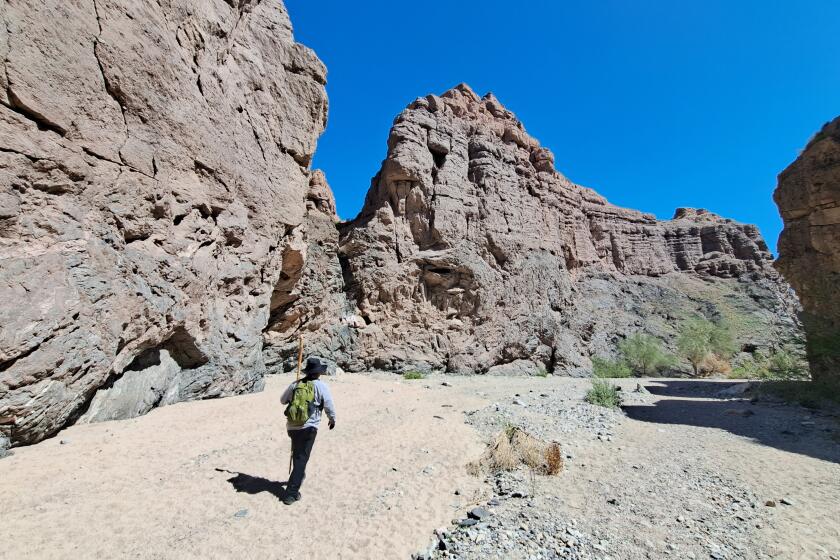LAPD Slow to Switch Flashlights
After an LAPD officer was captured on videotape hitting a car-chase suspect with a flashlight 10 months ago, Police Chief William J. Bratton vowed his officers would turn in their heavy metal devices in favor of smaller ones that could not be used as weapons.
But officers are still carrying the 2-pound, foot-long flashlights. And the Los Angeles Police Commission has yet to select a replacement.
At first, Bratton examined a variety of rubberized mini-flashlights -- some as short as 6 inches -- for possible use. But the chief was dissatisfied with the options. His main complaints were that the instruments didn’t produce enough light and that the buttons were in awkward places, making it difficult to turn them on.
So two months after the June beating, Bratton announced at a press briefing that he wanted the LAPD to design and have built a custom-made flashlight. Officials spent months working out the idea, only to conclude that it would be difficult to develop a flashlight without violating patents and that it would be even harder to find someone willing to produce it.
“We were not able to find any of the manufacturers to make a specific flashlight, so what we are going to do is come up with specifications,” Bratton said.
Now, the chief and other top officials said, the flashlight odyssey must end.
“This is a no-brainer ... this is the type of thing the department has been known to take too long to come up with a solution,” said Police Commission President David Cunningham III, who admits being frustrated by the delays. “They need to put it on the agenda. It must happen immediately.”
So on Tuesday, Bratton said he would present his flashlight choice to the commission next week. He said he would offer the board a set of specifications for which types of flashlights are permitted. He expects several brands to meet the criteria.
Officers then would pick the flashlights they wanted, and buy them with their annual equipment allowance.
“There are about a half-dozen flashlights on the market that could meet those specifications,” he said. “We’ll have them in officers’ hands before the end of June.”
Bratton said that the new flashlights would be smaller and lighter than the ones being used by most officers and that they would be nonmetallic.
The changes came after TV news helicopters on June 23 videotaped LAPD Officer John Hatfield hitting Stanley Miller with his metal flashlight 11 times. Miller had led police on a high-speed pursuit in a stolen car.
In January, Bratton pushed through a new policy prohibiting officers from using their flashlights as weapons except in emergency situations. But his pledge to change flashlights has taken longer.
The use of heavy flashlights as weapons has been a matter of controversy in police departments nationwide, with a 1985 study in the Journal of Police Science and Administration saying the devices caused more injuries than police batons. Several departments -- including those in Philadelphia, Chicago, Miami and Detroit -- have banned them.
But the move in Los Angeles has met with resistance from some police officers, who like the current flashlights and say they offer a level of protection while on patrol.
“We sincerely hope that our department will not buckle and shelve equipment that works every time they are confronted with controversy,” a statement in the latest e-mail newsletter from the Los Angeles Police Protective League reads.
“As you know, the department is thinking about saying ‘goodbye flashlights,’ next it could be ‘goodbye guns and batons.’ The ‘examination’ of flashlight policy is a brazen insult to our profession.”
Bratton, however, insists the big metal flashlights carry with them a “stigma” in the wake of the Miller incident and others like it. Over the last three years, the LAPD has recorded four dozen incidents in which officers used flashlights as weapons.
The district attorney’s office in February, citing insufficient evidence that the force used was without lawful necessity, chose not to charge Hatfield. Bratton said Tuesday he would decide within 10 days whether Hatfield and other officers involved in the Miller beating should be disciplined.
More to Read
Start your day right
Sign up for Essential California for news, features and recommendations from the L.A. Times and beyond in your inbox six days a week.
You may occasionally receive promotional content from the Los Angeles Times.







